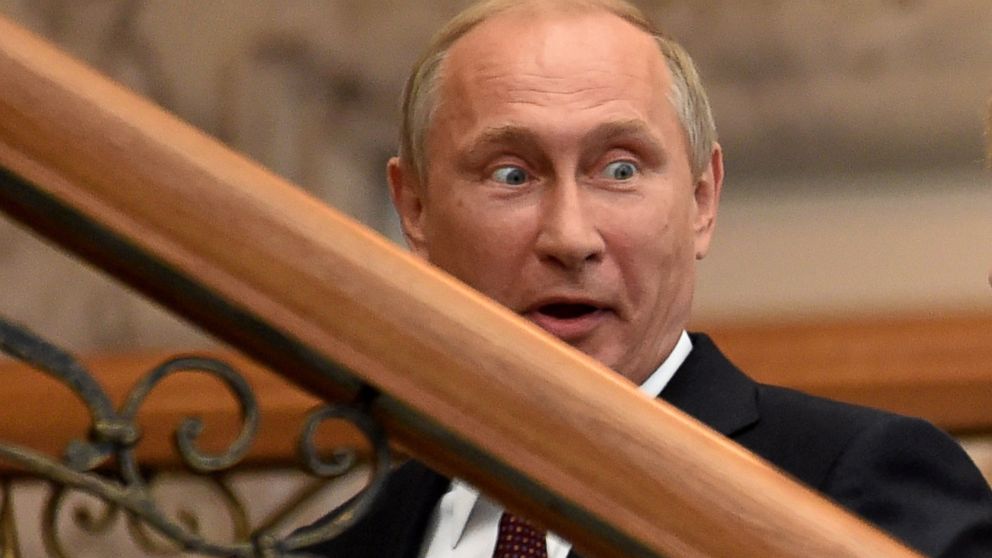Russia: Why 63 Is an Important Number These Days
It's part of a grim joke in Moscow these days.

— -- The grim joke in Moscow these days is that oil, the ruble and Putin are all headed for 63 next year.
That’s oil down to $63/barrel, the ruble plummeting to 63/dollar, and Putin turning 63 years old.
That joke was ruined today as the price of a barrel of benchmark Brent crude flew past $63 and is already around $62.59.
The ruble isn’t far behind.
US Embassy in Moscow Faces Cold War-Era Harassment
Today, it passed 57 to the dollar for the first time ever, down nearly 8% just this week and over 40% this year. Even a steep interest hike has done little to slow the ruble’s collapse.
There’s more bad economic news on the horizon. Some $128 billion is projected to have fled the country this year, more than double last year’s capital flight, and well over 6% of the entire Russian economy. Lower oil prices have wiped out tens of billions of dollars in market cap for Russia’s largest oil and gas companies. A recession is now projected next year. Inflation, particularly for food, is rising.
That’s not even the most troubling news.
Economists estimate Russian banks and major state-owned companies owe western banks hundreds of billions of dollars. But due to Western sanctions, they cannot refinance that debt in the U.S. or Europe. Chinese banks can’t handle that volume, so they are facing defaults or look for handouts from Russia’s dwindling rainy day funds.
The combination of factors has the potential to collapse Russia’s economy, with unpredictable consequences for Putin and the rest of the world.
President Vladimir Putin’s popularity is based on rising incomes and maintaining stability. Both are threatened if oil keeps dropping and prices keep rising. Russia’s budget will face a shortfall as it expected oil revenues to be significantly higher, affecting everything from state-owned companies that employ many Russians to pensioners and government employees on fixed incomes.
The West hoped sanctions would force Putin to reign in his muscular foreign policy. But as a recent Economist cover explained, a “wounded bear” could be more dangerous abroad.
Russia remains one of the largest economies in the world and its economic deterioration could ripple across the world.
Meanwhile, Putin is trying to deflect blame and attention. The top story on a major state-owned channel’s newscast today was not the ruble’s sudden drop, but a story about French soccer fans getting beaten up in Kiev.
Putin has tried to blame to western sanctions, and they surely played a role, but for years the Kremlin failed to address major structural problems with the Russian economy, which depends too much on oil revenue and natural resources. Flat growth was predicted even before the oil drop and sanctions.
There’s now a new joke making the rounds: “If you had the chance, what would you change in your past?” one Russian ask his friend. The friend replies: “I would’ve changed rubles to dollars.”




